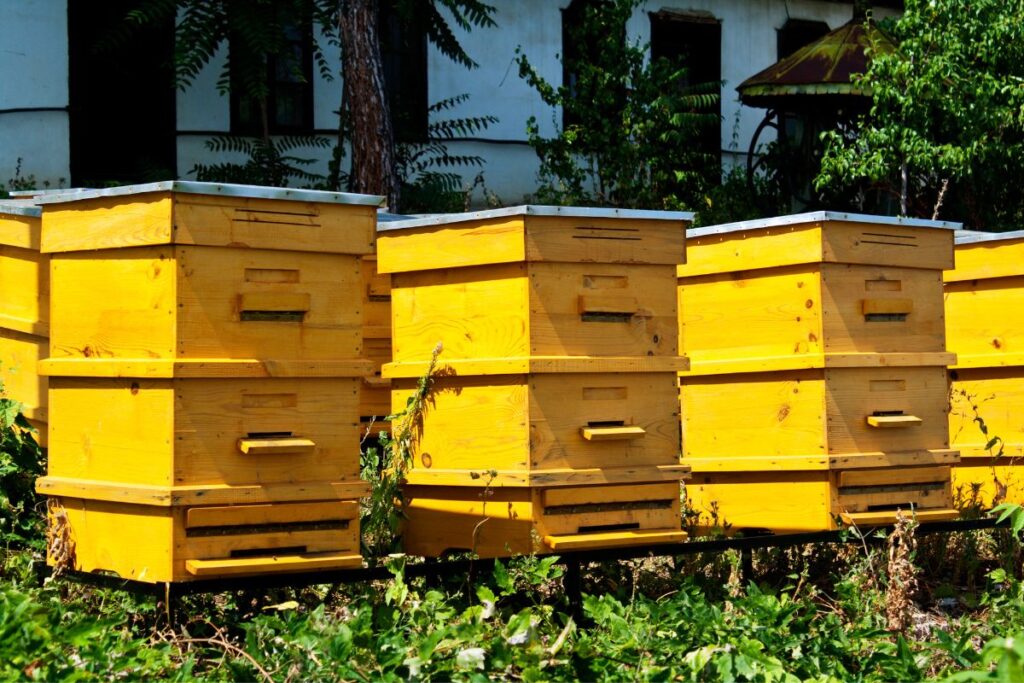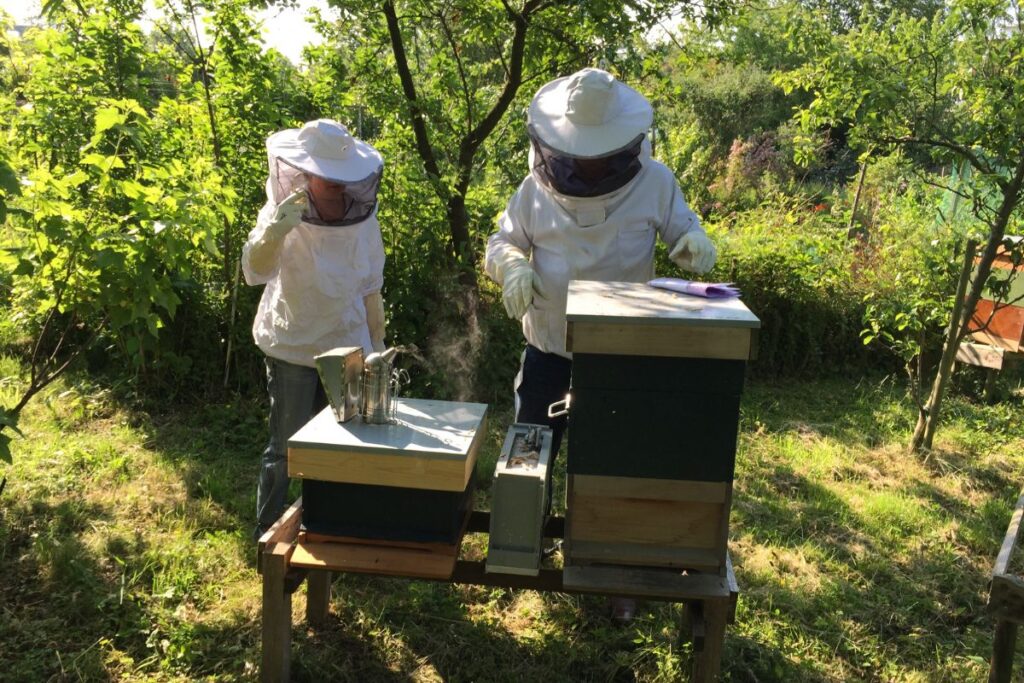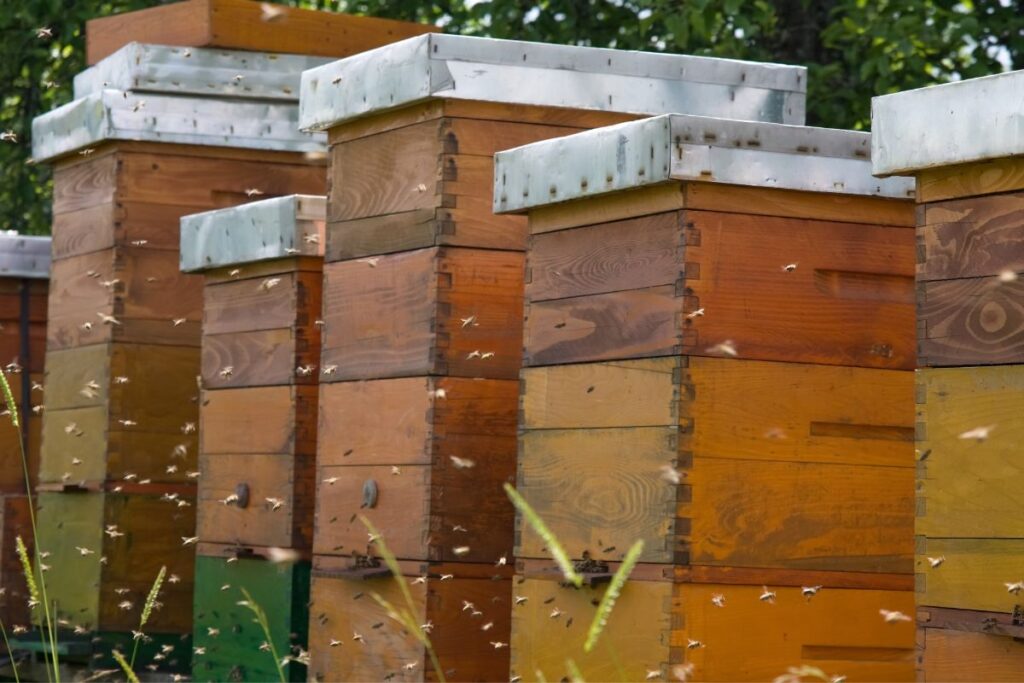Beekeeping is an awesome hobby, but it can be overwhelming for beginners to decide on the right number of hives to start with. In this article, we’ll answer some of the most common questions about hive numbers and provide guidance on how to determine the right number of hives for your situation.

Can I Have Just One Bee Hive?
Yes, it is possible to start with a single hive. However, having only one hive carries some risks. If something goes wrong with the hive, such as a disease outbreak or pest infestation, there is no backup colony to rely on for resources. It can also be difficult to recognize when a hive is beginning to decline if there is no other hive to compare it to. Additionally, a single hive may not produce enough honey to meet your needs, especially if you plan to sell or give away honey. It’s also worth noting that bees are social creatures and thrive in colonies, so keeping only one hive may not provide the best environment for the bees.
How Many Hives Can I Have?
The optimal number of hives to keep depends on various factors such as personal goals, available space, local regulations, and time commitment. Most beekeepers recommend starting with two hives and increasing gradually as experience and resources allow. Keeping multiple hives also provides a backup colony in case of problems with one of the hives. It’s important to note that each hive requires regular attention and care, so beekeepers should not take on more hives than they can handle.

How Many Hives Should I Have in One Location?
The number of hives that can be kept in one location depends on several factors, including available space, forage availability, and climate. It’s generally recommended to limit hives to prevent overcrowding and to ensure that each colony has enough space to forage. In urban or suburban areas, beekeepers may need to be more creative with hive placement to maximize available space. They may also need to consider the hive density of the neighborhood.
How Close Together Can Hives Be?
Hive spacing is an important factor in hive health and productivity. Hives placed too close together can lead to confusion for the bees, increased competition for resources, and increased risk of disease transmission. The recommended distance between hives is generally a minimum if 3 feet. However, beekeepers can adjust hive spacing based on their specific circumstances and needs.

Do I Need Two Hives?
While it is possible to keep just one hive, having two hives provides several benefits. Having a backup colony in case of problems with one of the hives is one of the most significant advantages of keeping multiple hives. Additionally, having two hives allows for a comparison of colony health and productivity, and provides a greater opportunity for learning and experimentation. In my opinion, you will ultimately learn more and have the best chance for colony survival if you start with at least two hives.
How Many Hives Are Too Many?
While it can be tempting to start with as many hives as possible, it’s important to remember that more hives mean more work and more risk. There is no hard and fast rule for the maximum number of hives a beekeeper can handle, as it depends on various factors such as experience level, time commitment, and resources available. However, experts recommend that beginners start with no more than two or three hives to avoid becoming overwhelmed.

Choosing the right number of hives to start with can be challenging, but with careful consideration of factors such as personal goals, available resources, and hive placement, beekeepers can determine the optimal number of hives for their situation. Starting with no more than two or three hives and increasing gradually is generally recommended for beginners. Remember, each hive requires regular attention and care, so beekeepers should not take on more hives than they can handle.


